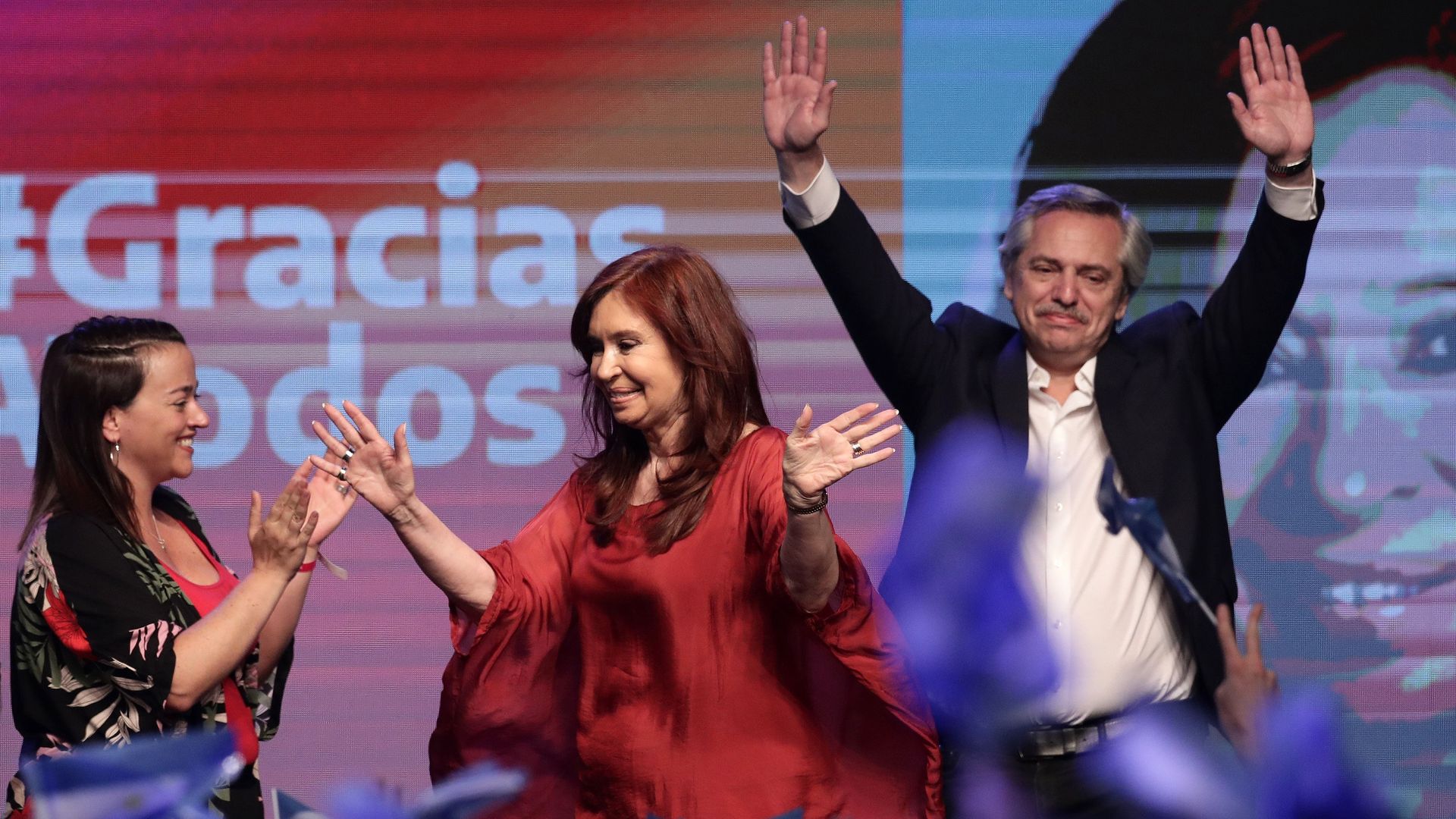Fernández's victory marks resurgence of the left in Argentina
Add Axios as your preferred source to
see more of our stories on Google.

Alberto Fernández and Cristina Fernández de Kirchner. Photo: Alejandro Pagni/AFP via Getty Images
Anti-incumbent sentiment and deepening economic anxiety propelled Alberto Fernández to a victory over Mauricio Macri in Argentina's presidential election on Sunday.
The big picture: Fernández garnered a comfortable 8-point margin, though fell short of the landslide Macri supporters feared after their 15-point deficit in the Aug. 11 primary. Fernández's victory marks the left’s return to power in Latin America’s third-largest economy, as well as the reascendance of former President Cristina Fernández de Kirchner, who will serve as vice president.
Where it stands: Fernández's coalition of Peronists and independent factions will have a majority in the Senate. It will be either the largest or second-largest force in the lower House of Congress, depending on the opposition's coalition.
- With Argentina’s economy experiencing a significant downturn, Fernández faces a tough road ahead. He must satisfy domestic demands for renewed growth and social spending, meet the spending targets in the $57 billion IMF loan agreement, and honor debts to bondholders.
- The political urgency of fiscal policies that benefit Fernández's core constituency may edge out payments to some of the country's creditors.
Between the lines: Fernández has carved out a reputation as a pragmatic negotiator. His skills will be tested as he sets out to define his authority and divide Cabinet posts in a way that satisfies Kirchner, who remains a key power broker in the Peronist coalition and commands strong support from the party's left-wing hardliners.
- In light of her polarizing legacy, Kirchner played a low-profile role on the campaign trail to avoid muddling Fernández's message of change. But she now seems likely to expand her presence.
- As vice president of the executive branch and president of the Senate, Kirchner will vacate her Senate seat but retain congressional immunity from any charges that emerge from the ongoing corruption investigations she faces.
What to watch: Fernández may make notable departures from Macri's foreign policy. His first foreign trip will reportedly take him to Mexico, where the Andrés Manuel López Obrador administration has taken a neutral, non-interventionist approach to the Venezuela crisis while working with the Trump administration on matters of bilateral strategic interest.
- A realignment away from an activist position on Venezuela, however, could hamper U.S.-Argentina relations as well as efforts by the regional Lima Group to apply collective pressure on Venezuelan President Nicolás Maduro.
Michael McCarthy is a research fellow at American University’s CLALS, an adjunct professor at George Washington University's Elliott School for International Affairs, and the founder and CEO of Caracas Wire.
